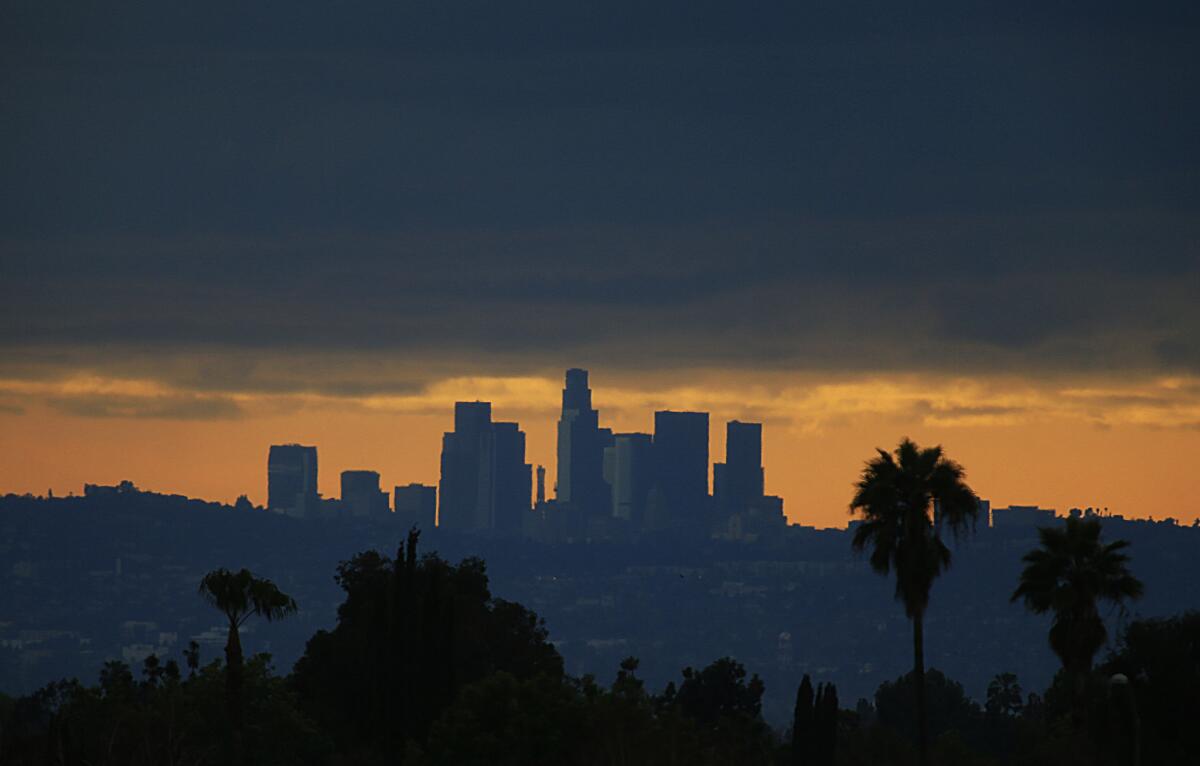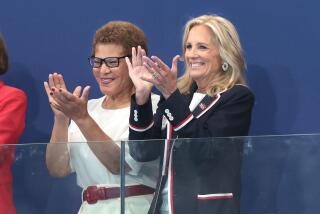Electric cars, clean air: Garcetti outlines vision for a ‘sustainable’ L.A.

Mayor’s vision for a more “sustainable” L.A. includes more electric cars and better air quality in poor neighborhoods.
Mayor Eric Garcetti on Wednesday released a broad-ranging plan that outlines his vision for environmental goals and programs in Los Angeles over the coming decades.
The 105-page booklet — simply titled, in a play on words, “the pLAn” — is a grab bag of new and previously announced environmental initiatives. It sums up in one place for the first time the mayor’s view of what he calls a more sustainable city, a diffuse vision touching on subjects ranging from the temperature of Los Angeles’ air to the rents paid by its residents.
The report sets objectives such as the increased use of electric vehicles, more reliance on solar power in the public and private sectors and better monitoring of air quality in poor neighborhoods.
Garcetti unveiled the plan at a news conference at Echo Park Lake. It was produced over the course of a year under the direction of Matt Petersen, the chief sustainability officer Garcetti appointed shortly after taking office in 2013.
Asked what its most important goals were, he pointed to curbing greenhouse gas emissions and water imports and reducing poverty through a higher minimum wage and more housing.
“It is very difficult for us to start to rank them, because I think also so much of it is how they tie together,” Garcetti said of the lengthy list of goals. “There’s no doubt that drought and our relationship with water is probably the most urgent of the needs, but can I really say that’s more urgent than global warming? One is related to the other.”
The report calls for a 25% reduction by 2035 in greenhouse gas emissions generated by the transportation of goods at the Port of Los Angeles. It also envisions the installation of 1,000 electric vehicle charging stations in two years (about 100 of those would be on city property). One change will take effect quickly as Garcetti appoints 22 sustainability officers in various city departments who will report to Petersen.
Some of the plan’s elements are already are in place. For example, calls to reduce per-capita water use by 22.5% by 2025 and halve the city’s importation of water from outside sources were included in an executive directive Garcetti issued last year. At least one initiative — phasing out the city’s use of electricity from coal-fired power plants — was instituted by former Mayor Antonio Villaraigosa.
Other goals involve issues over which city officials may have limited control, such as lowering the city’s temperature by 3 degrees (as compared to the baseline temperature of neighboring rural areas) over the next two decades. The report suggests that could be accomplished by planting more street trees and increasing use of “cool roofs” that absorb less heat.
In an interview, Petersen said that the report was an important first step toward achieving the far-reaching vision it describes.
“If we don’t take the step to set targets, and measure progress to achieve those targets,” Petersen said, “how will we send the signals to the private sector, to the universities, that this is important as a community to come together?”
“There are things we can do,” he added. “But we can’t do it alone.”
For more news from the mayor’s office, follow @petejamison.
More to Read
Sign up for Essential California
The most important California stories and recommendations in your inbox every morning.
You may occasionally receive promotional content from the Los Angeles Times.











